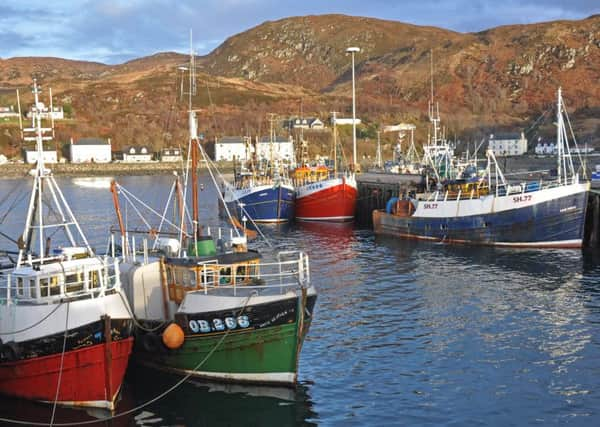Watch for catches in casting vote in EU referendum


Europe – and our place in it – is never far away from the forefront of politics and passionate debate. Being part of the European Union affects all walks of life, and of course, fishing is no different. Indeed, the very term Common Fisheries Policy (CFP) stokes the strongest emotions within the fishing industry: of all the people in the land and of all the home businesses, the fishing industry is among those most acutely affected by EU membership.
With a referendum on our membership scheduled for 2017, it is important that in the fishing industry we examine carefully what this might mean for us. For the individual voters involved, the fundamental question is whether there is scope to change aspects of the CFP that will bring a better deal inside the EU for fishers, or, should the referendum so decide, would leaving the EU be the best option?
Advertisement
Hide AdAdvertisement
Hide AdIf the UK votes to withdraw, there would immediately be a fundamental change – the UK’s long-lost control over the greater part of the northern European fishing grounds would be restored. Like Norway, Iceland and the Faroes, the UK would set its own fishing opportunities and negotiate its own agreements with the other Coastal States and with the EU. This is a statement of fact rather than a killer argument for withdrawal because, of course, there are other factors to consider in the balance.
When politicians say wistfully that in the past “fishing was sold down the river” or was “expendable” they are actually referring back to the loss of this national control on joining the EU (then the EEC) in the first place, in 1973. We joined because the six original members were doing conspicuously better economically than we were, and we wanted to have the benefits of a collective market. An inseparable element of the deal was the CFP, which was in rudimentary form at that stage, but fishing was not a priority in the overall scheme of things and the rest is history.
If the UK leaves the EU, control under international law of the maritime space including fishing, out to the 200nautical miles/median line limits will be regained. From the industry point of view that instinctively sounds like a very good thing – more so if the balance between that gain and the other effects of leaving the EU turned out to be positive – and of course, if the Member State home nation governments could do a better fisheries management job than the EU.
But what if we stayed within the EU? Well, there is a real opportunity to influence things for the better for fishing in the forthcoming negotiations. It would certainly be a tragedy if fishing were to be put on the back burner by either or both the Scottish and UK governments. Fishing is after all a crucially important means of ensuring our food security in a sustainable manner. For Scotland, fishing is worth over almost £500 million in landings alone – once you add the processing and aquaculture element, then the overall economic contribution of seafood is immense.
There are, it would seem, some general principles in the negotiations that have the potential to benefit fishing. These include the key demands of powers flowing from Brussels not always to it; national parliaments able to block EU legislation; and red tape reduction.
The one of most interest to fishing is the concept of the returns of greater regional control because this will domino to create further benefits. The extensive micro-management from Brussels has been a disaster for Scottish fishing. Much better instead to manage fisheries regionally and adopt regional management for regional issues.
And realistically this is one of the serious changes that certainly suggests itself as being achievable during the negotiations – strengthening in a very specific way the new “regionalisation” which was part of the reformed CFP agreed last year. At the moment, the legal structure means that this “regionalisation” as enshrined in the new CFP is actually more advisory rather than a proper delegation of management responsibility. This simply will not do.
We urge the UK and Scottish governments to pursue in the negotiation process the changes necessary to give proper regional control; this will lead to more efficient fisheries management which in turn will lead a reduction in the bureaucratic red-tape that obstructs our industry.
Advertisement
Hide AdAdvertisement
Hide AdThe referendum is a fundamentally important issue for the fishing industry and all fishermen will need to carefully consider the balance of the benefits of staying in the EU or leaving when they cast their vote.
• Bertie Armstrong chief executive of the Scottish Fishermen’s Federation